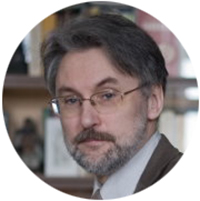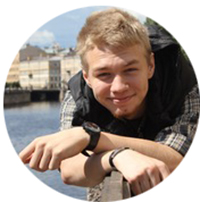HSE Researchers Present Their Study on Educational Migration
Research projects on social informatics of the Laboratory of Sociology in Education and Science have been presented at two conferences in Germany.
The Annual International Conference on Web and Social Media (ICWSM) was recently held in Cologne. The event was organized by GESIS (Leibniz-Institute for the Social Sciences), one of the leading academic sociological centres in Germany. Daniil Alexandrov, Head of the Laboratory of Sociology in Education and Science, Ilya Musabirov, Junior Research Fellow of the Laboratory, and Viktor Karepin, Research Assistant of the Laboratory, took part in the conference.
The conference included plenary sessions preceded by a series of seminars. The lab’s report was presented at the seminar ‘Social Media and Demographic Research: Applications and Implications’ organized by Emilio Zagheni, Professor at the University of Washington, and Bogdan State, doctoral student at the Standford University, Data Scientist at Facebook.
The Lab’s report covered the latest results of a research project on educational migration. The study looks at both Russian students continuing their studies abroad, and the migration trajectories of students from CIS countries to Russia.

Daniil Alexandrov
It was nice to see Emilio Zagheni (University of Washington), who we already knew, and Ingmar Weber (Qatar Computing Research Institute), who came to our laboratory last year and talked about interdisciplinary research in Computational Social Science.
There was also Emma Spiro whom I met at the Sunbelt Conference and will meet again at the Annual Meeting of the American Sociological Association in Seattle and then at the conference on social informatics.
Emma Spiro is one of the young sociologists of the new generation, for whom big data analysis is part of everyday research work. I also met some new colleagues, for example Munmun De Choudhury (Georgia Tech) who is known for her work on how depression affects the behavior of people in social networks.
Hannah Miller’s report on ‘Investigating the Potential for Miscommunication Using Emoji’ turned out to be interesting. When sending emoji between different smartphone platforms a picture can vary significantly, and the recipient can interpret it in a different way to the sender. In addition, even the same image may be perceived differently by different people.
So instead of simplifying communication, emoji can make it more complicated. This work may interest both people who use emoji, and smartphone manufacturers, the results of the research were published online and widely reproduced in the media.
I also met Adriana Lamnitchi, whose work focuses on how cheating spreads in online games. Cheating is quite common, and there are companies that sell software allowing players to see more than the game provides, for example, players can see through walls.
Such cheating can be tracked, and these players are then banned, so they have to start the game with a new profile. Although everyone knows that the cheaters will be revealed and punished, there are still a lot of players cheating.
The researchers found out that foul play has a viral nature - if the players see that someone in their immediate environment is cheating, the chances that they will also use cheating are high. The report is very interesting and no doubt the results will be applied far beyond online gaming.
Victor Karepin was not the only student at the conference. There was also Tina Vachovsky, student of Standford University, who talked about the analysis of gender stereotypes in a huge community of online writers in the United States. Tina presented a report that had been prepared in cooperation with her Professor. Her presentation clearly demonstrated that students can participate in international conferences.

Viktor Karepin
The seminar we took part in impressed me a lot. A lot of international experts, whose works I’d read a couple of weeks prior to the conference, participated in the event.
And, of course, it was a great experience to get feedback about my work from these experts.
Although this is not my first conference, it’s the first time I have felt truly part of the international scientific community that unites both students and renowned researchers.